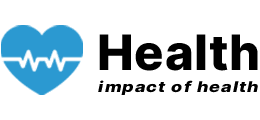In today’s fast-paced world, staying informed about health research and news is crucial for making informed decisions about our well-being. With the abundance of information available, it’s essential to navigate through the sea of data and distinguish between reliable sources and misinformation. Let’s delve into the world of health research and news, exploring its significance, challenges, and impact on society.
Introduction to Health Research & News
Health research plays a pivotal role in advancing medical knowledge and improving healthcare outcomes. From groundbreaking discoveries to evidence-based treatments, research findings shape medical practices and policies worldwide. Meanwhile, health news serves as a bridge between scientific discoveries and the general public, translating complex information into digestible insights.
Understanding Health Research
Before diving into health news, it’s essential to understand the fundamentals of health research. Research can take various forms, including clinical trials, observational studies, and meta-analyses. Peer-reviewed studies undergo rigorous scrutiny by experts in the field, ensuring the validity and reliability of the findings. Contrarily, anecdotal evidence lacks scientific rigor and may lead to misleading conclusions.
Navigating Health News
While access to health information has increased, not all sources are created equal. It’s crucial to identify credible sources backed by reputable institutions and experts. Additionally, understanding bias in reporting helps readers discern between sensational headlines and evidence-based articles. Evaluating study methodology provides insight into the reliability of research findings, helping readers make informed decisions.
Trends in Health Research
The landscape of health research is constantly evolving, with emerging trends shaping the future of healthcare. From precision medicine to artificial intelligence, technological advancements are revolutionizing medical practices. Meanwhile, global health trends highlight the interconnectedness of health issues, emphasizing the need for collaborative efforts to address public health challenges.
The Influence of Health Research on Policies
Health research informs policy decisions, driving initiatives to improve public health outcomes. From vaccination mandates to smoking cessation programs, research-led policies aim to address pressing health issues. However, implementing research findings into policy can be challenging, requiring collaboration between researchers, policymakers, and stakeholders.
Controversial Topics in Health Research
Certain health topics spark debates and controversies, making it essential to separate fact from fiction. Vaccinations remain a hotly debated issue, with misinformation contributing to vaccine hesitancy. Similarly, dietary fads and alternative medicine practices often lack scientific evidence, posing risks to public health.
Ethical Considerations in Health Research
Ethical considerations are paramount in health research, ensuring the rights and well-being of participants. Informed consent, privacy protection, and transparency are fundamental principles guiding ethical research practices. Moreover, addressing conflicts of interest helps maintain the integrity and credibility of research findings.
The Role of Media in Health Communication
Media plays a significant role in shaping public perceptions of health issues, yet sensationalism and misinformation abound. Journalists have a responsibility to accurately report on health matters, avoiding sensational headlines and providing context to research findings. Communicating complex scientific concepts in an accessible manner is key to fostering health literacy among the public.
Impact of Health Research on Society
The impact of health research extends beyond medical breakthroughs, influencing societal norms and behaviors. Improvements in healthcare outcomes result from evidence-based interventions, while economic implications underscore the importance of investing in research and innovation. Public health initiatives driven by research findings aim to address disparities and promote health equity.
Challenges in Health Journalism
Health journalists face numerous challenges in reporting on complex scientific topics. Access to experts and resources is crucial for accurate and comprehensive coverage. Moreover, misinterpretation of research findings and the spread of misinformation pose significant risks to public health.
Future Directions in Health Research and News
Looking ahead, advancements in data analysis and collaborative research initiatives hold promise for addressing pressing health challenges. Integrating traditional and modern medicine offers holistic approaches to healthcare, while promoting interdisciplinary research fosters innovation and discovery.
Tips for Staying Informed
To navigate the vast landscape of health information, it’s essential to follow reputable sources, fact-check information, and engage with healthcare professionals. By staying informed and critically evaluating information, individuals can make empowered decisions about their health and well-being.
Promoting Health Literacy
Promoting health literacy is essential for empowering individuals to take control of their health. Educating the public on research findings and encouraging critical thinking fosters informed decision-making. Community health initiatives play a vital role in addressing health disparities and promoting equitable access to healthcare.
Addressing Health Disparities
Disparities in healthcare access and outcomes persist, highlighting the need for targeted interventions. Research gaps in marginalized communities underscore the importance of inclusive research practices. Policy solutions aimed at addressing social determinants of health are crucial for promoting health equity and reducing disparities.
Conclusion
In conclusion, staying informed about health research and news is essential for making informed decisions about our well-being. By understanding the fundamentals of health research, navigating through information with discernment, and promoting health literacy, individuals can empower themselves and contribute to better health outcomes for all.
FAQs
How can I identify credible health news sources?
Look for sources backed by reputable institutions or experts in the field. Check for evidence-based reporting and transparent methodology.
What should I do if I encounter conflicting health information?
Consult multiple sources, fact-check information, and consider seeking advice from healthcare professionals.
Why is it important to stay updated on health research and news?
Staying informed helps individuals make informed decisions about their health, understand emerging health trends, and advocate for evidence-based policies.
How can I distinguish between reliable research studies and anecdotal evidence?
Reliable research studies undergo peer review and follow rigorous methodology, while anecdotal evidence lacks scientific validation and may be based on personal experiences.
What role does the media play in shaping public perceptions of health issues?
The media can influence public perceptions through its coverage of health topics, highlighting the importance of accurate and responsible reporting.


